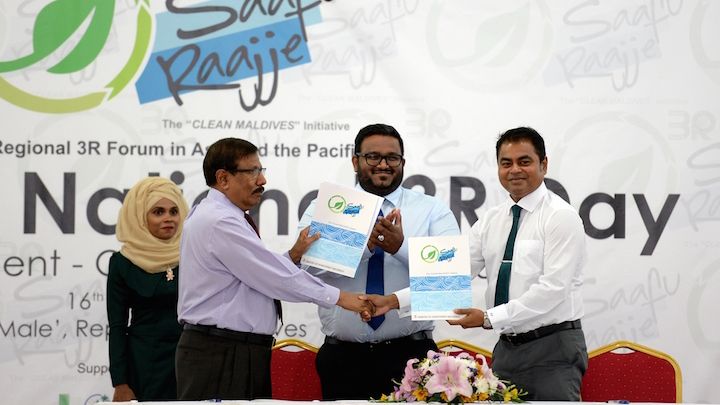Government and resorts sign zero waste declaration
The environment ministry and some 99 resorts signed a declaration to promote sustainable tourism and protection of marine and coastal ecosystems in the Maldives at the opening ceremony of the “Sixth Regional 3R Forum in Asia and the Pacific” held at the Dharubaaruge convention centre this morning.

16 Aug 2015, 09:00
The environment ministry and some 99 out of 111 resorts in the Maldivian tourism industry signed a declaration today to manage waste, promote sustainable tourism and protect marine and coastal ecosystems.
The declaration was signed at the opening ceremony of the “Sixth Regional 3R Forum in Asia and the Pacific” – an annual forum initiated in 2009 by the Japanese government in partnership with United Nations Centre for Regional Development (UNCRD) with the goal of integrating the 3Rs (reduce, reuse, and recycle) in the overall policy, planning and development.
Speaking at the opening ceremony of the forum held at the Dharubaaruge convention centre this morning, Vice President Ahmed Adeeb announced the introduction of a national 3R award “to further encourage the measures by the industry to incorporate resource efficiency into tourism operations.”
The government also plans to mark August 16 annually as the national 3R day.
Become a member
Get full access to our archive and personalise your experience.
Already a member?
Discussion
No comments yet. Be the first to share your thoughts!
No comments yet. Be the first to join the conversation!
Join the Conversation
Sign in to share your thoughts under an alias and take part in the discussion. Independent journalism thrives on open, respectful debate — your voice matters.




